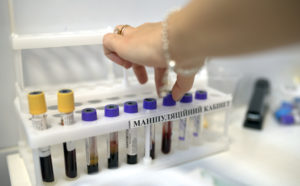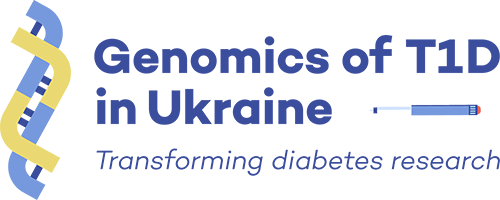The Mission

The “Type 1 Diabetes Mellitus Exomes Study in Ukraine” is a genetic study in case-control research involving Type 1 Diabetes (T1D) patients and control subjects recruited in Ukraine.
We aim to generate the most expansive “open access” repository of whole exome sequences and whole genome genotypes with at least 10,000 type 1 diabetes (T1D) patients with matching controls for the discovery of new genetic factors involved in T1D. This effort will help predict, prevent, and identify therapies to improve health in people living with the disease.
The primary objective of this project is to uncover new genetic factors associated with T1D, which could have significant implications for predicting, preventing, and developing therapies to enhance the well-being of individuals affected by the disease. The study takes into account the geographical and genetic diversity of the Eastern European population, with the potential to identify novel T1D markers for prevention and treatment.
Once completed, the project will offer a valuable resource accessible to the global scientific community through a dedicated online platform, facilitating data retrieval and ongoing monitoring. This project distinguishes itself through its unprecedented scale and scope in the realm of T1D research, and it holds the potential for further expansion.
Strategy

1) complete the collection of samples and medical information from people with T1D and matched controls from Ukraine and adjacent countries in Eastern Europe;
2) sequence the whole exomes from 10,000 patients and 10,000 controls and perform whole exome analysis of the association of genetic, environmental, and clinical data;
3) to develop a special digital portal for sharing the data and the results of the analysis with the research community.
Outcomes

1) A collection of samples and medical information from people with T1D and matched controls from Ukraine,
2) an “open access” repository of whole exome sequences with at least 10,000 type 1 diabetes (T1D) patients,
3) published results of the association study between exome variants and T1D.
